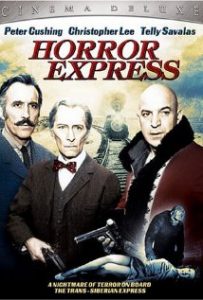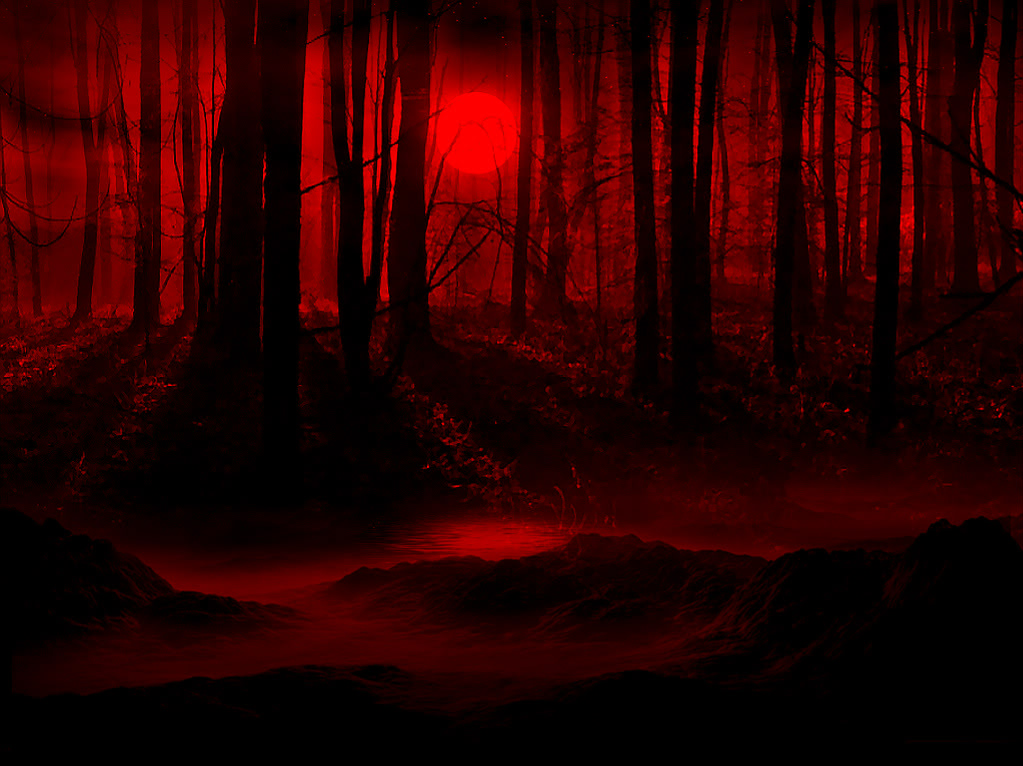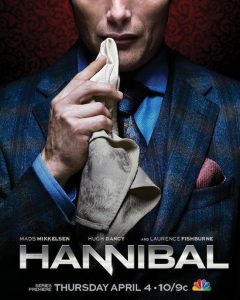Is “Good” Horror Becoming too Horrific?
When I think of what I consider the best horror movies of all time, The Exorcist (1973) and The Shining (1980) immediately spring to mind. I hate slasher films (excluding the original 1978 Halloween movie) and what’s called “torture-porn” (Saw, Hostel and the like) and never watch them. Back in 1995, I saw David Fincher’s Seven which incredibly was only his second feature film, starring Morgan Freeman, Brad Pitt, Kevin Spacey and Gwyneth Paltrow. I can’t believe it’s been nineteen years since that movie was released. I also hate serial killer films but Seven ranks is a great movie and I saw it specifically because of the outstanding cast and it made me a fan of director Fincher as well.
However, I remember thinking to myself afterwards that I was glimpsing the future of entertainment and I was reaching for a word—the anti-hero. The audience wouldn’t tune in to see our hero (or heroine) vanquish the bad guy (or gal), but they would instead gather around to see the latest exploits of everyone’s favorite criminal succeed at another crime and, later, this would devolve into wanting to see the violence they would unleash against unsuspecting and innocent victims. Rooting for the bad guy over the good guy marks a major paradigm shift in society because it is no longer just an occasional thing in entertainment, but has become mainstream. We’ve always had stories of the bad guy as the “star” going back to Edgar Allen Poe in the 1800s or Alfred Hitchcock’s Psycho in 1960. I am talking about people tuning in not just to see the bad guy but specifically to see (and revel in) what bad things the bad guy will do to innocent people. There was the television show Dexter and there is now the show Hannibal.
Nearly two thousand years ago in the Ancient Roman Empire the main entertainment of the day was going down to the local coliseum to watch seasoned gladiators square off in fights to the death against each other, maybe some novice fighters, and, yes, wild animals (dog, boars, lions, tigers, and bears, oh my). The death sports also included convicted criminals, political enemies and even random people in the audience to “liven” things up. Look at all the many serial killer shows and pseudo-serial killer shows there are on American television. Good grief! I don’t watch any of them but if there are that many on the TV schedule then it means a lot of people are.
The scariest movie I ever saw was Horror Express (1972).  Don’t know it? It was one of British Hammer films with Peter Cushing, Christopher Lee, and Telly Salavas from the tv series Kojak. The reason it was the scariest movie I ever saw was because I had no business sneaking down in the middle of the night from my room to watch it in the living room without my parents’ permission. They of course would never have let me watch it but hey, I may have been five or six years old but I was a mature five or six. Seriously, I had nightmares for weeks! Almost thirty years later I found the movie in a classic DVD rental store and couldn’t wait to watch it again. It was a bit cheesy, a bit dated, but I found the special effects to be better than some of the CGI you see on a typical movie on the Sci Fi channel. Blinded people with bloody eye sockets, an autopsy wherein a woman’s skull was opened to examine her brain. Yep, I had no business watching this as a small child but now as an adult I thought it was all great fun. But that’s the point. A child is supposed to be innocent and that’s why we as a society shields (or should shield) them from certain things because they are not equipped to handle them yet. Sadly, I think the modern five year old would have no problem with this movie because they’ve already seen much worse already and that is much more than a shame. I believe if a society’s children never have their period of innocence then those children will grow into adults collectively who paradoxically never mature properly.
Don’t know it? It was one of British Hammer films with Peter Cushing, Christopher Lee, and Telly Salavas from the tv series Kojak. The reason it was the scariest movie I ever saw was because I had no business sneaking down in the middle of the night from my room to watch it in the living room without my parents’ permission. They of course would never have let me watch it but hey, I may have been five or six years old but I was a mature five or six. Seriously, I had nightmares for weeks! Almost thirty years later I found the movie in a classic DVD rental store and couldn’t wait to watch it again. It was a bit cheesy, a bit dated, but I found the special effects to be better than some of the CGI you see on a typical movie on the Sci Fi channel. Blinded people with bloody eye sockets, an autopsy wherein a woman’s skull was opened to examine her brain. Yep, I had no business watching this as a small child but now as an adult I thought it was all great fun. But that’s the point. A child is supposed to be innocent and that’s why we as a society shields (or should shield) them from certain things because they are not equipped to handle them yet. Sadly, I think the modern five year old would have no problem with this movie because they’ve already seen much worse already and that is much more than a shame. I believe if a society’s children never have their period of innocence then those children will grow into adults collectively who paradoxically never mature properly.
Let’s Have Dinner With Hannibal the Cannibal
Now that brings me to what prompted this blog post to begin with and that is the series on NBC Hannibal. Was there any doubt this was coming after Anthony Hopkins’ portrayal of the iconic serial killer created by author Thomas Harris on the big screen? I watched the entire first season of Hannibal through Netflix and it was by no means a chore. There are all kinds of shows with the “viewer discretion advised” warning but not so with Hannibal which arguably has some of the most disturbing scenes and stories ever on television. Examples include naked women impaled on razor sharp deer antlers, comatose men buried in the dirt and feed intravenously as mushrooms grow and consume their bodies, and a serial killer who makes a person into a human violin (he wanted to be able to ‘play’ a person).
Mads Mikkelsen who plays the title actor is a great actor and I have enjoyed his work in even movies that I didn’t care for. Every actor from Laurence Fishburne, Caroline Dhavernas, etc. is at the top of their craft, and especially Hugh Dancy who plays Will Graham. The writing is excellent and the visual direction is amazing. We had arrived at the point where I feared we were inevitably headed after I saw the movie Seven. As with any entertainment you must put the art aside and ask yourself what exactly you’re watching. We are watching a series about a serial killer doing all kinds of evil things to innocent people and each episode introduces an assortment of one or more other killers doing a new and unique set of evil things to people.
There is nothing wrong with violence against evil or evil people (such as against, for example, slavery, Adolf Hitler, a real-life serial killer cannibal Jeffrey Dahmer). It is actually…good. Psychologically, enjoying bad things happening to bad people is healthy. But haven’t we returned to those days of the Ancient Romans in the coliseum who couldn’t get enough of the carnage against innocents. With digital technology and the incessant consuming of digital entertainment not only for television and movies, but books, email, etc. I argue that we are creating a generation that “lives” more in that virtual world rather than the real world, they’d rather text or chat rather than meet the friend in person (they don’t even pick up the phone anymore), and the violence (and sex) of that entertainment has to sink lower, become more intense, become more twisted to keep this mass audience “hooked.” I wouldn’t be so concerned long term about the society if the kids actually got up and walked away from the smart phones and tv to go out to directly interact with the real world without a wireless internet connection anywhere. The average person spends an astonishingly 11 hours a day on digital media—television, the internet, and smartphones! http://mashable.com/2014/03/05/american-digital-media-hours/ I find that scary. (No wonder we have a public obesity problem!)
Was Confucius Right? “To see and listen to the wicked is already the beginning of wickedness.”
Of course, I can hear the voices saying about my qualms this “evolution” of our entertainment is “it’s only fiction, relax,” or “it’s not real.” There are three problems in increasing order of importance:
1) To quote Morpheus: “What is real?”
I’m not being metaphysical but this isn’t the 1890s when the first “moving pictures” came out. Movie magic is so advanced now, as you can tell from the glut and coming glut of comic book super hero movies, that whatever we can imagine we can put on the screen. People who have heard gunshots for the first time say that it sounds like firecracker pops. Why would they say that? After growing up on movies with the standard amplified audio of gun shots, to the average person the sound of a gunshot is real, but an actual gunshot in real life is not. We have reached the phenomena where in the mind’s eye of many, “fake” is more real than reality because it is indistinguishable from that reality.
Well the same goes for the carnage depicted in movies. My issue is not with violence. I consider Thirteen Assassins to be the greatest samurai ever made and despite extreme violence and gore, it actually is not glorifying violence at all. The sentiment of the characters is, “this is what we have to do, we’re not happy about it, most of us are going to die, so let’s kill this psycho.” The opening sequence of Saving Private Ryan is brutally violent as American troops storm the beaches of Normandie, France but that’s the point: war is hell, even for the good guys.
It’s not the fact of the violence of Hannibal, it’s the quality of the violence. It’s one thing if there is an accident on the freeway and people want to stop and look. It’s quite another to say to people at 11:00 pm there will be some gruesome violence at this location and you have a crowd of people show up at that time and location.
2) Why Don’t You Know My Name?
We are reinforcing the collective sentiment in the media and the public that victims don’t matter. Hitler was responsible for six million dead; Stalin, twenty million; Mao, eighty million. People can name Ted Bundy, Dahmer, William Gacy, and many other serial killers, but can anyone name one of the innocent victims. They live on in books and movies but no one, save the families and friends, ever acknowledge the victims. I do not want to be unfair to the makers of Hannibal because I know that this is not their intention; I am looking at all this from a macro or global level. But the fact remains, ever can name the killer, no can name the victim.
3) Entertainment is “God.”
The ultimate problem is that entertainment is the leading shaper of both morality and culture today. This is true for the masses by a wide margin, even among religious people. The innocence of the society should be as precious to us all as the innocence of children. I am not talking about censorship for adults; I am opposed to that. But adults themselves should be far more very discriminating about the kinds of images and sounds that they allow to whorl around inside of their heads. The mind isn’t just a terrible thing to waste but it is a terrible thing to pollute. Think healthy living for not only your body but your mind.
This is a heavy blog post for me to write as I’m my no means a morose person and the movie Seven is part of my movie collection. But I’ve somehow always been able to see certain trends in society before they materialize, especially the bad ones. This debate on violence in entertainment is not a new one. It is a balancing act for all of us and by all means, enjoy your entertainment. There’s nothing wrong with being scared or creeped out by a Stephen King book or enjoying a story about the descent into madness of a “normal” person like the classic book The Invisible Man by H.G. Wells or the contemporary television show Breaking Bad. But despite forces in the society trying to blur the lines, there is still good and evil and I am not interested in living in a world where evil rules the day or, even scarier, a world where the average person doesn’t know the difference between the two. With the power of modern entertainment on the general society we cannot ignore its impact on that society long-term. I’m not talking censorship or protesting these actors, writers and producers. All I’m saying is to think about the digital media you consume on a frequent basis, that’s all.
Hannibal is an impressively well-made show with a great cast but I will not be watching any more of it. It’s interesting that the “good guy” William Graham is the epitome of neurosis and on the verge of losing himself to insanity. However, Hannibal is suave, debonair, calm and clever. Well he is still a twisted serial killer and serial killers are not cool. With the entertainment industry’s fixation and the general worship of this new kind of anti-hero, murdering left and right with glee, with our popcorn in hand, are we not all spectators in a modern-day version of Ancient Rome’s arena? Is not our society darkening?
What do you think?
#Hannibal #Confucius

Austin Dragon is the author of over 30 books in science fiction, fantasy, and classic horror. His works include the sci-fi detective LIQUID COOL series, the epic fantasy FABLED QUEST CHRONICLES, the international futuristic epic AFTER EDEN Series, the classic SLEEPY HOLLOW HORRORS, and new military sci-fi PLANET TAMERS series. He is a native New Yorker but has called Los Angeles, California home for more than twenty years. Words to describe him, in no particular order: U.S. Army, English teacher, one-time resident of Paris, ex-political junkie, movie buff, Fortune 500 corporate recruiter, renaissance man, futurist, and dreamer.
LATEST RELEASES: CRAZY MISADVENTURES IN LIQUID COOL and A MONSTROUS GAME!







0 Responses
I would rather watch a creepy movie. There is too much gore in a lot of the movies now.